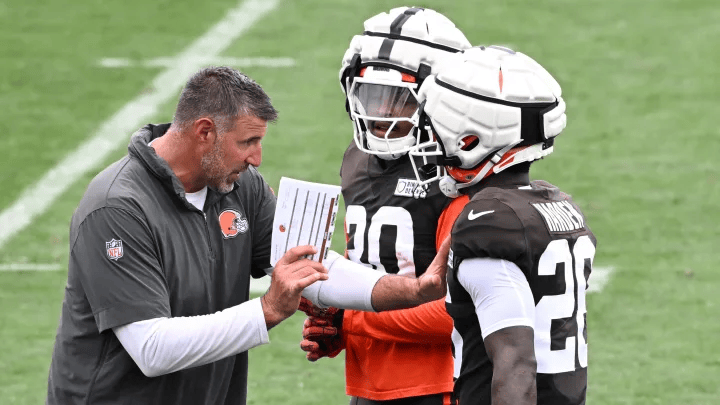Lane kiffin calls Jaxson Dart extended absence ‘judgment call we could maybe take back in the future’
Lane Kiffin, head coach of the Ole Miss Rebels, recently addressed the extended absence of his starting quarterback, Jaxson Dart, with a candid remark that has garnered attention. Kiffin described the decision to hold Dart out of certain games as a “judgment call,” adding that it was a choice the coaching staff might “maybe take back in the future.” This statement highlighted the complexity and sometimes second-guessing that comes with key decisions in college football, especially regarding injuries and player availability.
Jaxson Dart, who transferred to Ole Miss from USC in 2021, has been a key figure in the Rebels’ offense, known for his strong arm and dual-threat ability. His leadership and playmaking ability have been instrumental in Ole Miss’s offensive strategy. However, earlier in the season, Dart faced a situation that left his availability in question. A series of injuries, combined with a need for caution in a high-stakes environment, led the coaching staff to make a decision about keeping him sidelined.
Kiffin’s comments underscore the delicate balance coaches must maintain when handling injuries, especially in a position as pivotal as quarterback. College football is a high-intensity, high-risk sport, and decisions regarding the health of a player can have lasting impacts on both their individual performance and the team’s success. For Kiffin, while the decision to rest Dart seemed to be the prudent one at the time, he admitted that, with hindsight, it might be a choice that could have been reconsidered, depending on the circumstances.
The “judgment call” Kiffin referred to likely involved weighing Dart’s recovery against the potential long-term effects of rushing him back too soon. Coaches must also consider the impact of injuries not just on the current season but on a player’s future. Given Dart’s importance to the team and the program’s overall success, Kiffin and his staff had to think carefully about how to handle his absence in the context of the team’s goals for the season. The comments suggested that, at the time, they were playing it safe but acknowledged that the approach might be reevaluated based on how the situation develops.
It’s common for college football coaches to make decisions that, in retrospect, can be questioned. The high-stakes nature of the sport, especially in a competitive conference like the SEC, means that decisions about injuries, rest, and game-time readiness can often feel like a gamble. If Dart were to miss more games or if his absence were to have a significant negative impact on the team, those early decisions could be viewed differently.
The statement also revealed Kiffin’s leadership style, which involves transparency and a willingness to own decisions, even those that may not turn out as planned. Acknowledging that the “judgment call” could be “maybe taken back in the future” shows that Kiffin is reflective and open to rethinking his decisions based on new information, such as Dart’s recovery progress or the team’s performance without him.
As the season progresses, Ole Miss fans and analysts will continue to watch how Dart’s health evolves and whether Kiffin’s decision to rest him earlier in the season has any long-term consequences. Kiffin’s comments remind everyone involved in college football—players, coaches, and fans alike—that decisions made in the heat of the moment can sometimes benefit from reevaluation as circumstances change.

